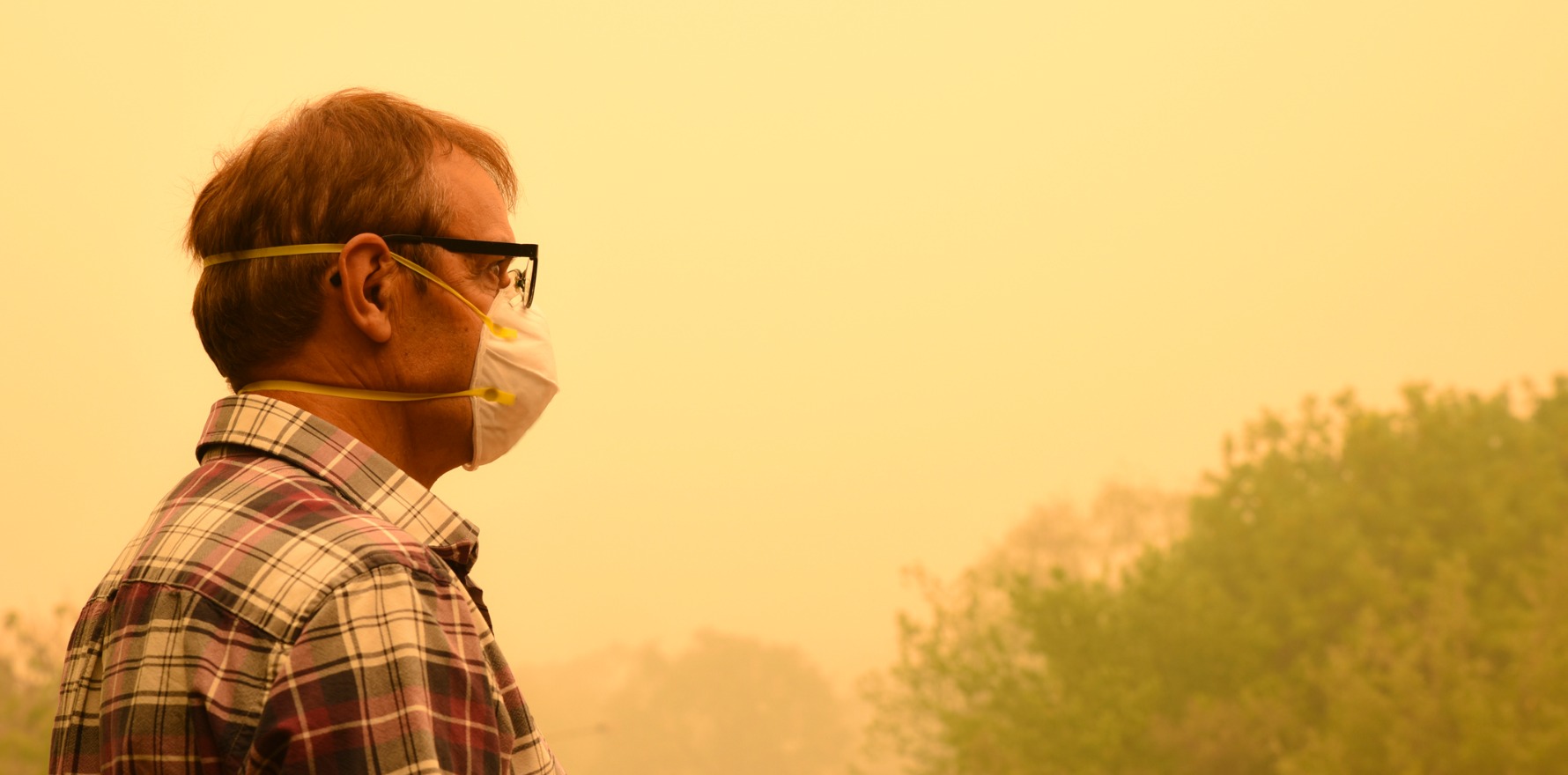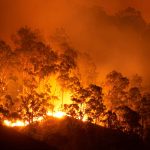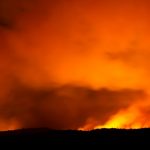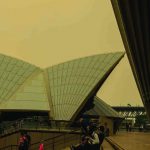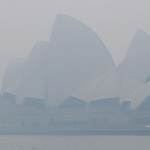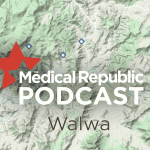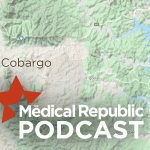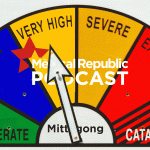Should you tell your patients to wear masks during the next fire season? There is little evidence yet to support this advice, but an Australian RCT will attempt to plug that knowledge gap.
Should masks be worn during bushfire season? That question is being put to the test in a world-first study of their effects over smoky periods.
Patients with asthma, emphysema, chronic bronchitis or bronchiectasis who live in regions affected by bushfire smoke last summer are encouraged to sign up.
This is the first randomised controlled trial to assess whether masks reduce the risk of respiratory condition flare-ups, and will finally provide evidence to underpin guidelines, said study lead Professor Raina McIntyre, of the Kirby Institute at the University of NSW.
“It is really important,” said Professor McIntyre. “Bushfire seasons are getting worse and it has been predicted that they will continue to get worse.”
Many Australians are vulnerable to health complications from bushfire smoke, she added. “An estimated about 15% of Australians have asthma, for example, and maybe another 5-10% have COPD.”
Despite this, there is no high-quality research underpinning guidelines on whether patients should use masks to mitigate harms from bushfire smoke.
To establish this, Professor McIntyre and her colleagues will randomly assign participants to use either a P2 respirator mask, to use a surgical mask or to avoid outdoor air when the air quality is poor.
Air quality is based on a variety of thresholds, including the air quality index, alerts from monitoring agencies or by using the Victorian government-developed visual method of assessing the haziness in the air.
Participants will keep a daily diary to record the air quality, whether they used a mask or not, their symptoms, healthcare presentations to a hospital or GP and medication use.
The team will collect data periodically until November, taking reports all through December and January. They will undertake a final analysis during April 2021 when there are no hazard reduction burns or seasonal fires as a comparison.
Participants in the BREATHE (Bushfire, Respiratory protection, Emphysema, bronchitis and Asthma Triggering Health Effects) study will be allowed to avoid outside air even if they are randomised to the mask group, and use a mask if they are assigned to the avoidance group. They will record what they actually do and this will be taken into account when the data is analysed.
Even without this provision, there were no ethical concerns about randomly assigning people to one group over another, said Professor McIntyre.
“There is no evidence for any of those interventions,” she said. “It may end up that avoiding air is better than masks. Asthmatics often say they find it difficult to breathe with a mask.”
The team secured $500,000 as part of the federal government’s $5 million Bushfire Impact Research Grant scheme.
Individuals living in areas affected by bushfire smoke in NSW, Victoria, ACT, SA and Tasmania may be eligible to participate. Masks will be sent to participants.
Patients can register their interest here: https://kirby.unsw.edu.au/breathe

